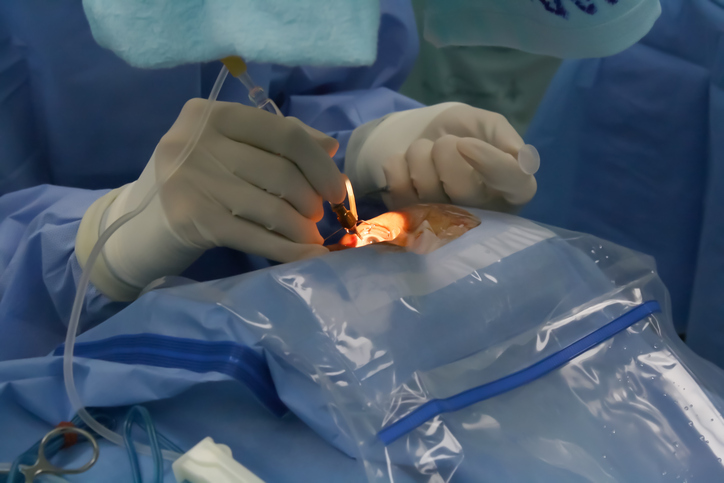 Cataract surgery in dementia patients may improve vision and slow mental decline. The researchers suggest that quality of life also improved after cataract surgery.
Cataract surgery in dementia patients may improve vision and slow mental decline. The researchers suggest that quality of life also improved after cataract surgery.
Researcher Dr. Alan Lerner said, “These preliminary results indicate that improved vision can have a variety of benefits for people with dementia and their loved ones, both visual and non-visual.”
Advertisement
Cataract surgery involves removing the eye’s cloudy lens and replacing it with an artificial clear lens.
The study included 20 dementia patients who had cataract surgery along with a control group of eight patients who did not undergo the surgery.
Six months after the surgery, patients in the surgery group had significant improvements in their vision and quality of life, slower decline in memory and thinking, along with greater improvements in behavior, compared to those in the control group.
Caregivers of the patients who had the cataract surgery also reported an improved quality of life.
Dr. Lerner added, “Our findings need to be verified in a larger study, but they suggest the need to aggressively address dementia comorbidities such as vision-impairing cataracts, while balancing safety and medical risks. If the results hold up, it will significantly affect how we treat cataracts in individuals with dementia. Other interventions to offset sensory loss — including vision and hearing — may help improve quality of life for people with dementia and their caregivers.”
Cataract surgery recovery for people with dementia
Cataract surgery is quite common among those over the age of 50, and in majority of cases vision can be restored. Cataracts are often associated with aging, and so are dementia and Alzheimer’s disease, and so it comes as no surprise that many patients with dementia may also have cataracts.
Cataracts can negatively impact one’s quality of life and impair vision, leading to further complications associated with dementia and Alzheimer’s disease.
For uncomplicated cataract surgery, the procedure only lasts 10 minutes, but you will spend between 30 minutes to an hour in a recovery room. Someone will need to bring you home. Your vision may still appear blurry or distorted when you remove the eye patch – this does not mean the surgery was unsuccessful and it is actually quite normal.
Eyes may also appear bloodshot, but this will go away once healing takes place.
After a few hours, vision will get clear again, but because everybody is different, for some people, this may take days and even weeks.
Regular follow-up appointments with your doctor will determine the health condition of your eyes and monitor for any changes.
Advertisement
Although you may feel good after your surgery, you should still take it easy and exercise some caution in order to reduce your risk of injury. Here are some safety tips to keep in mind after a cataract surgery:
- Don’t drive
- Don’t perform any heavy lifting
- Avoid sneezing or vomiting
- Be careful when walking around to avoid banging into doors or other objects – ensure your walking path is clear
- Avoid swimming or hot tubs to reduce the risk of infection
- Avoid irritants like dust, wind, or grime
- Avoid touching or rubbing your eyes
Your doctor will inform you of any specific requirements you may need to be mindful of after surgery.
Also read: Prevent cataracts naturally: Home remedies and diet
